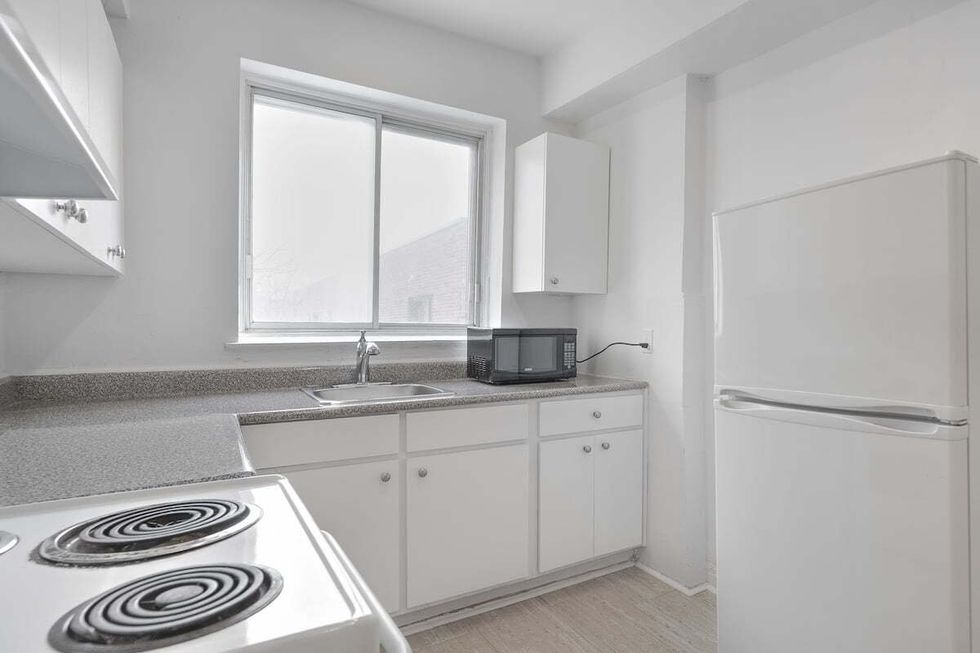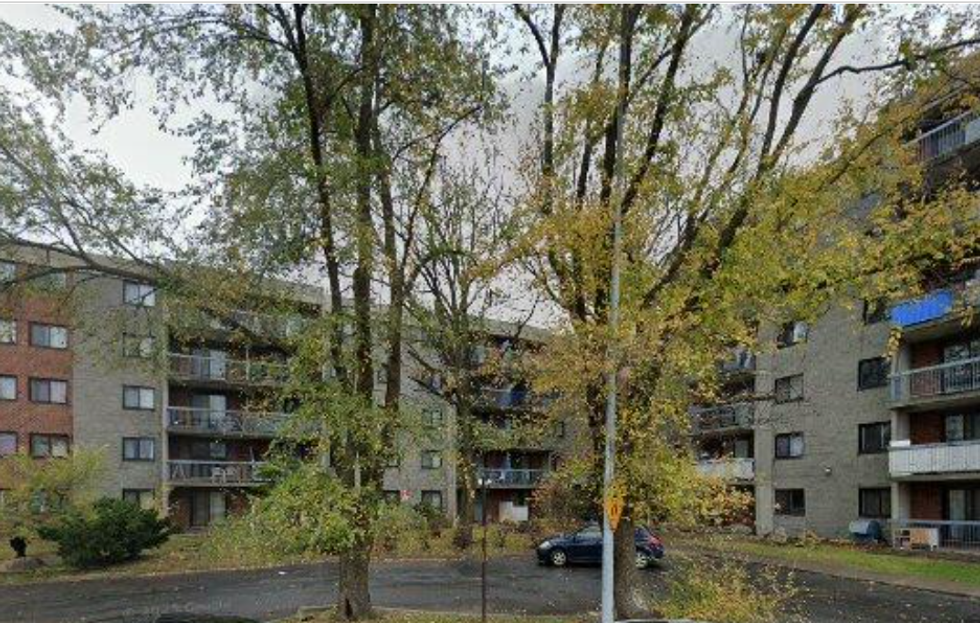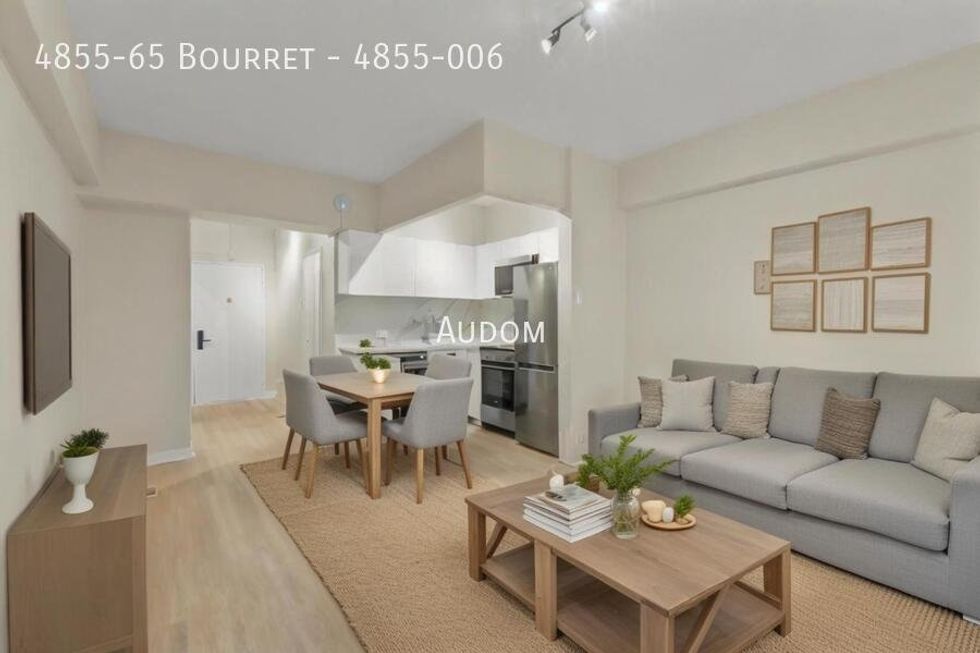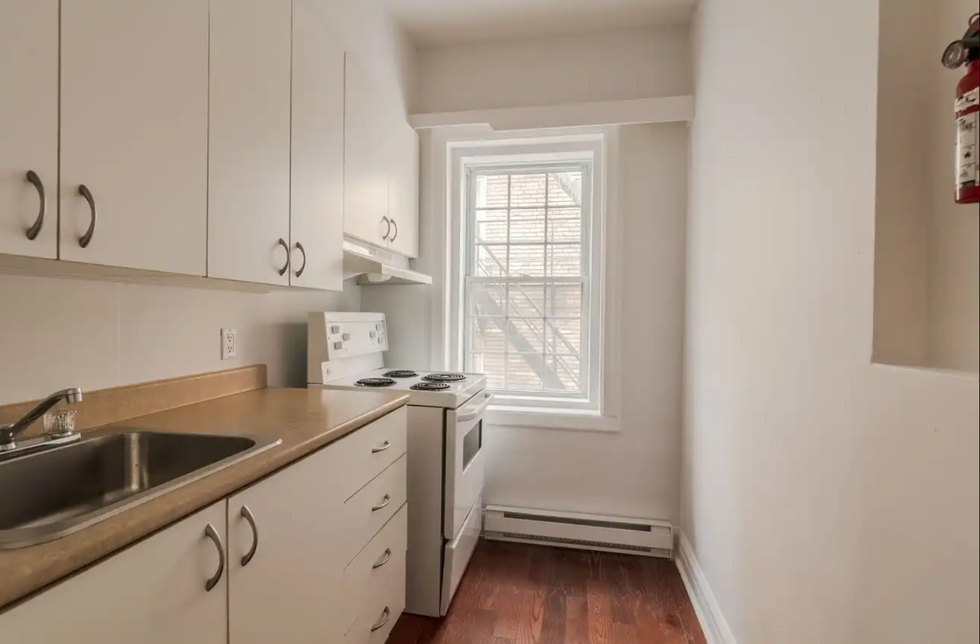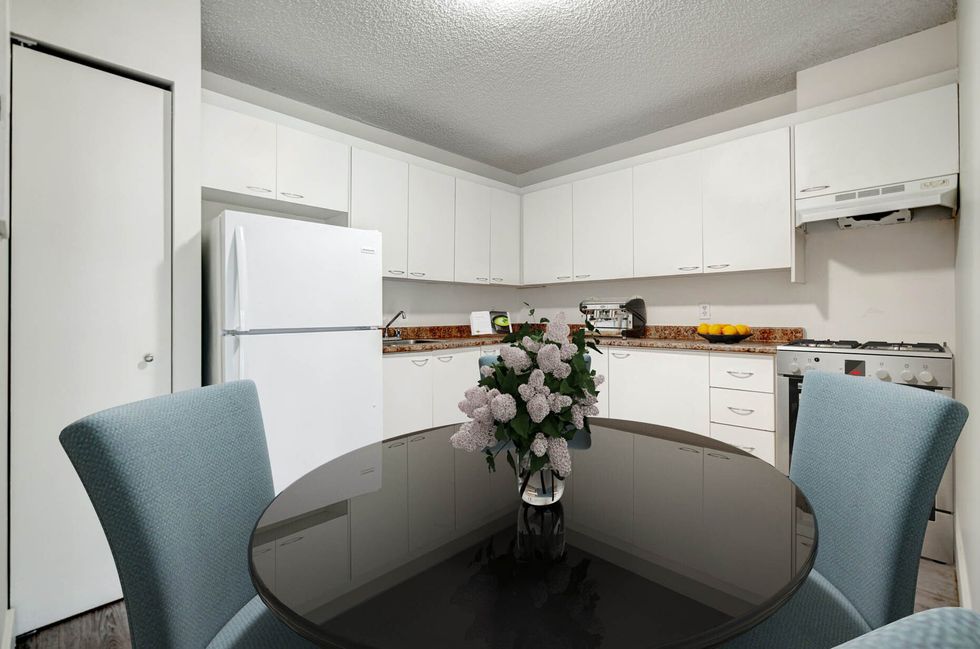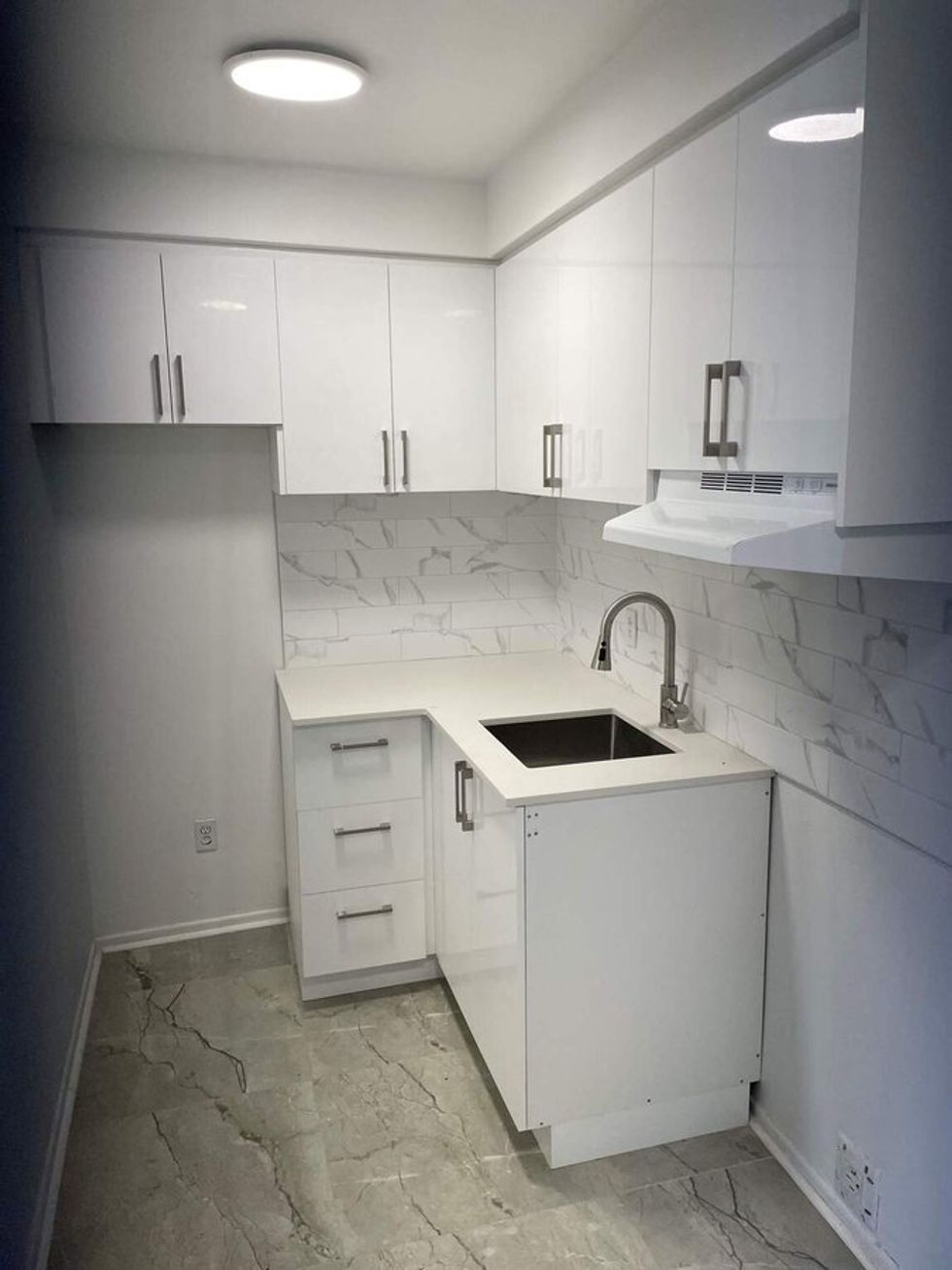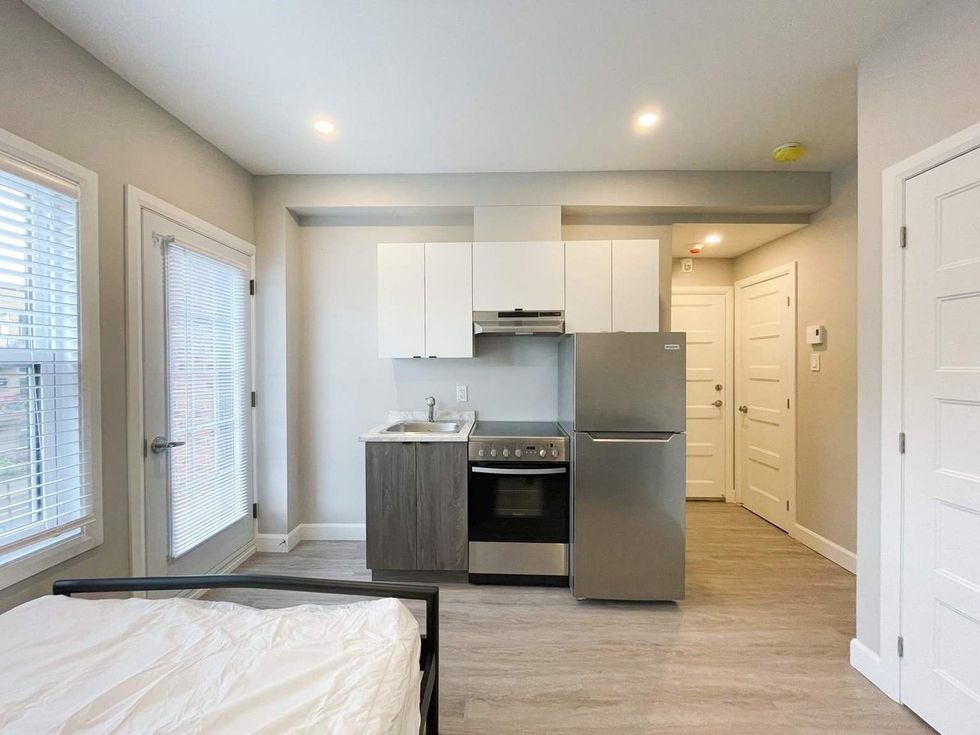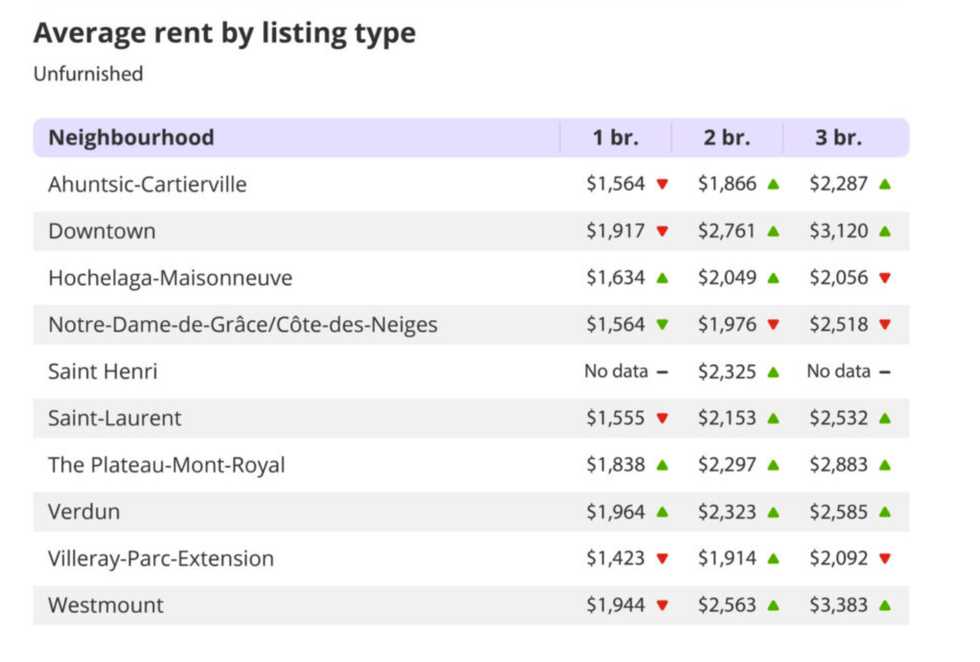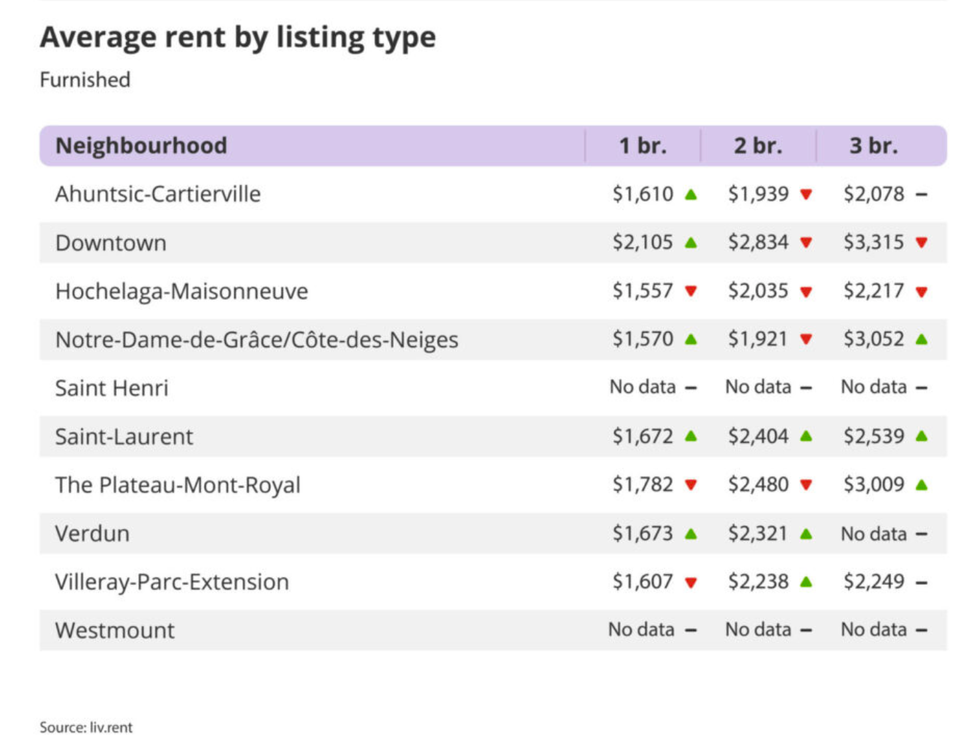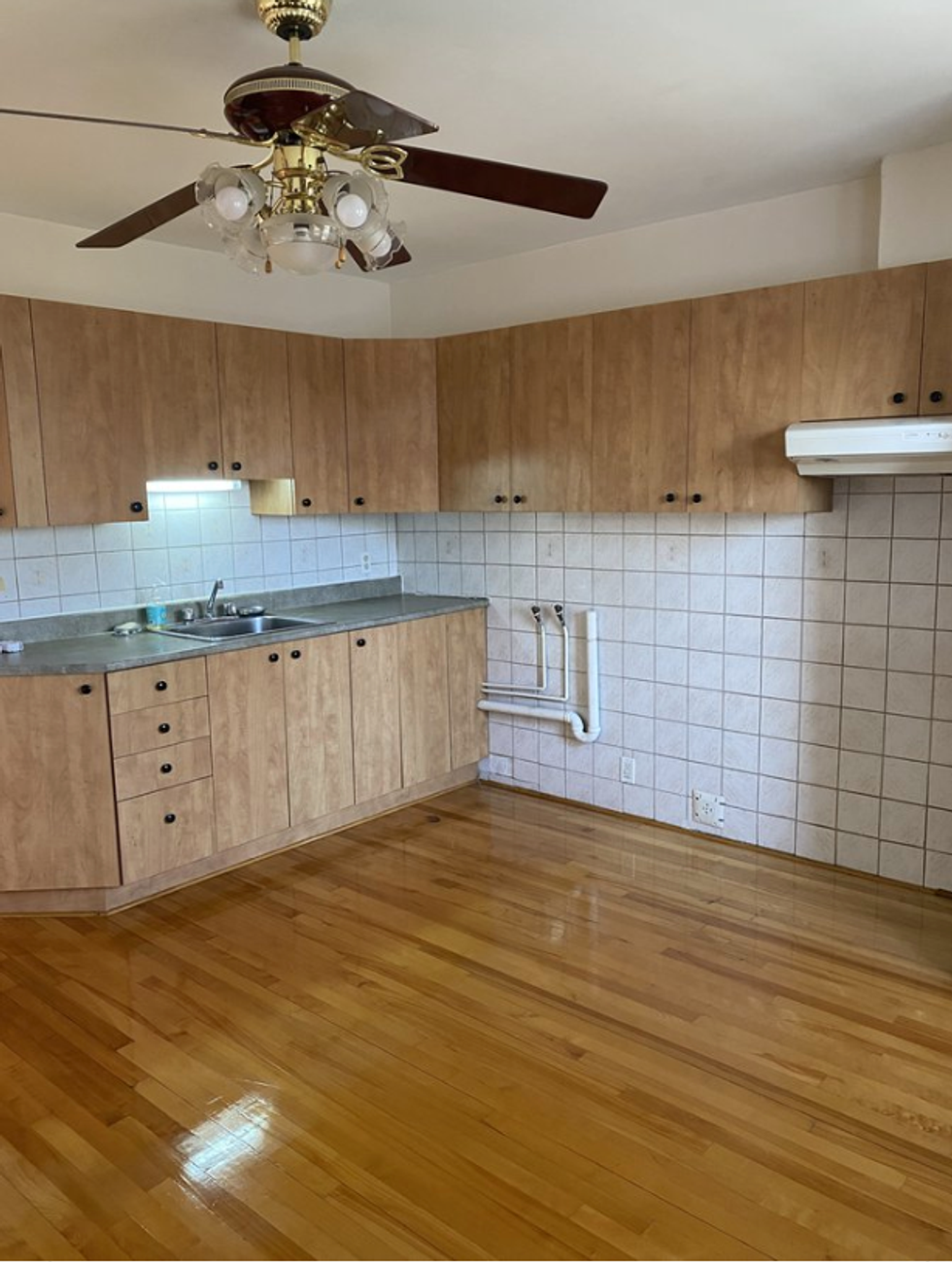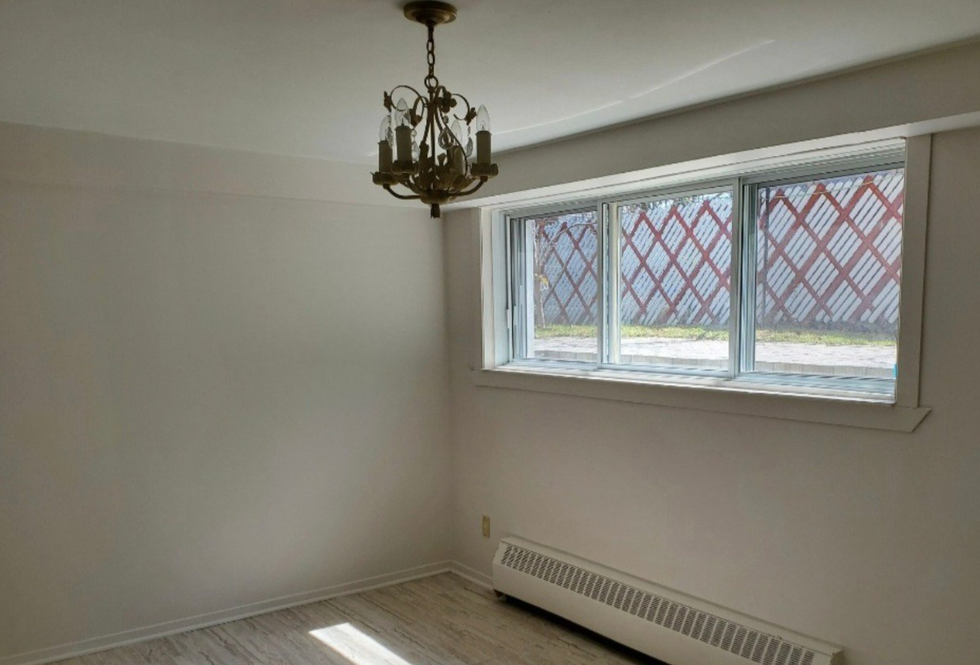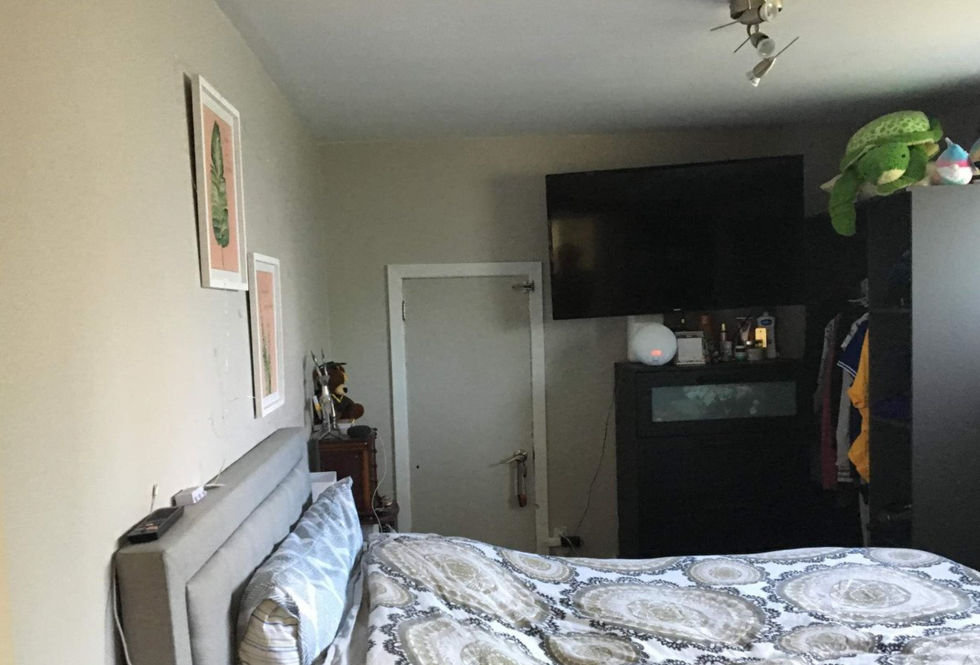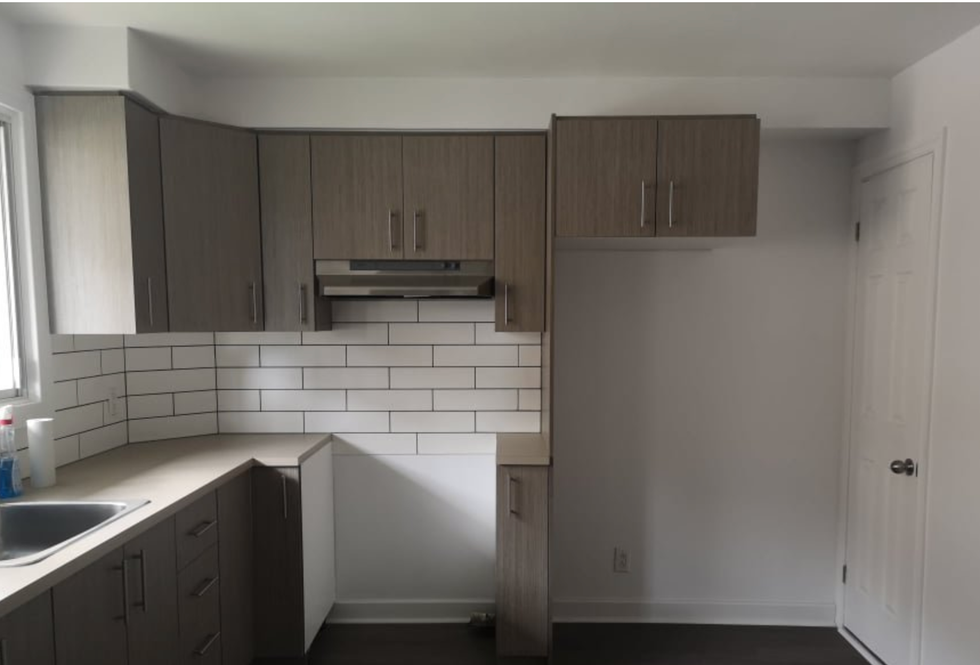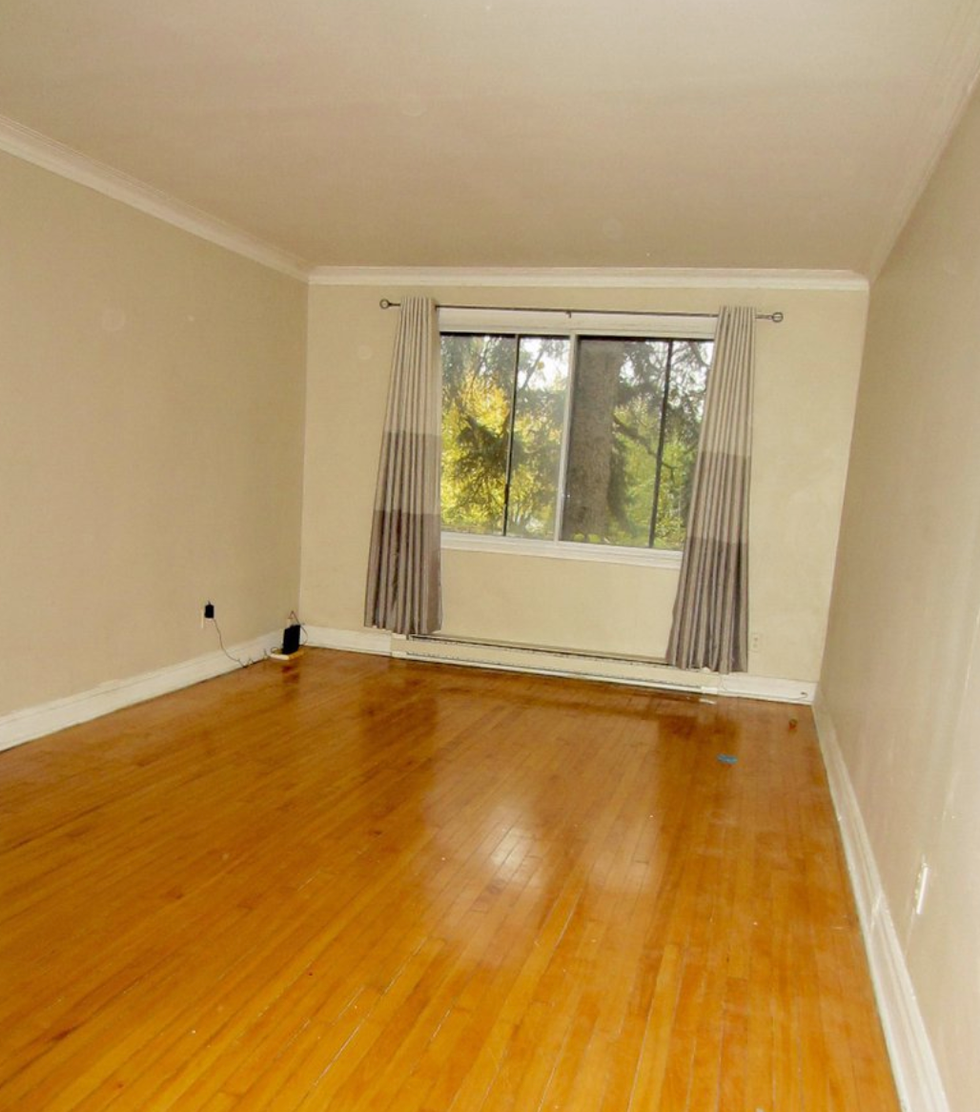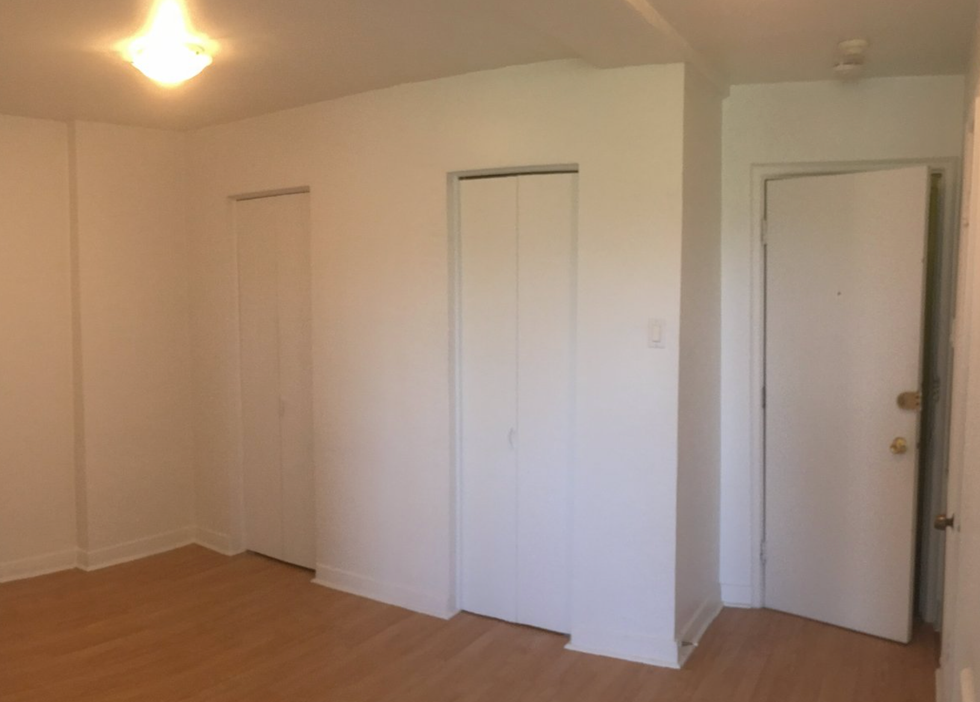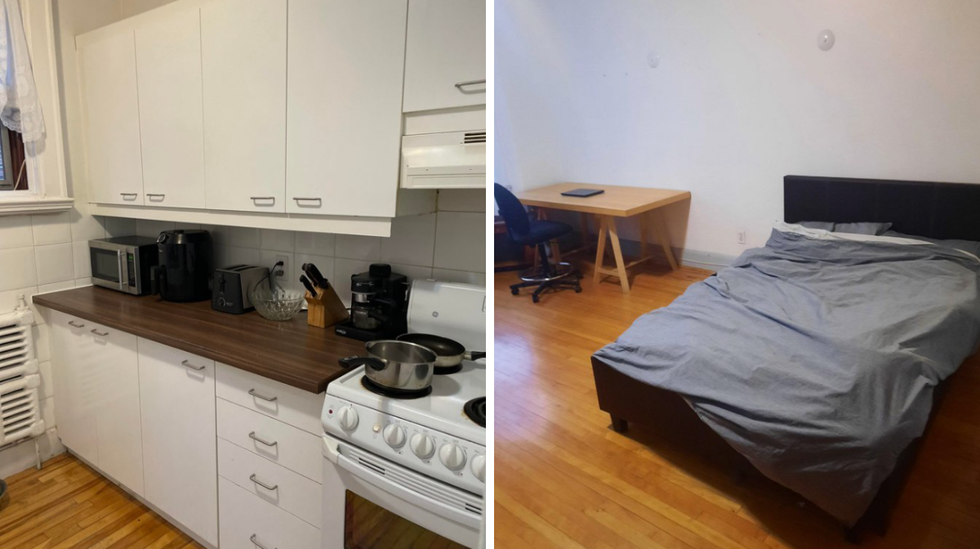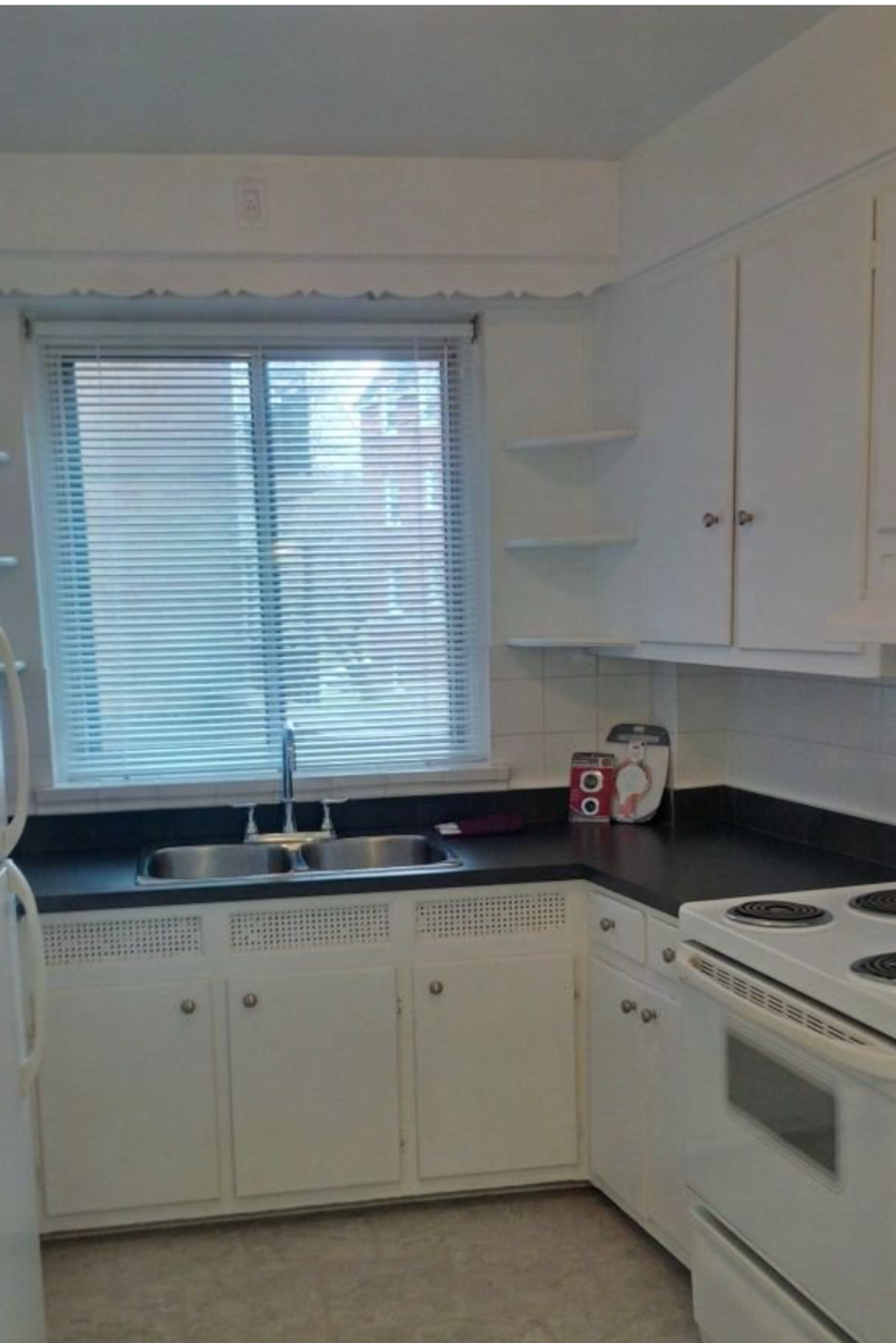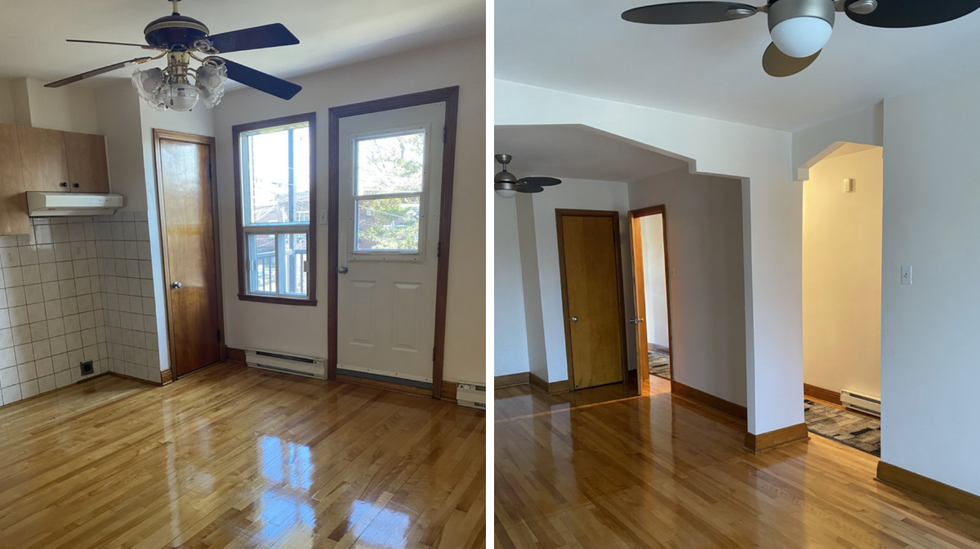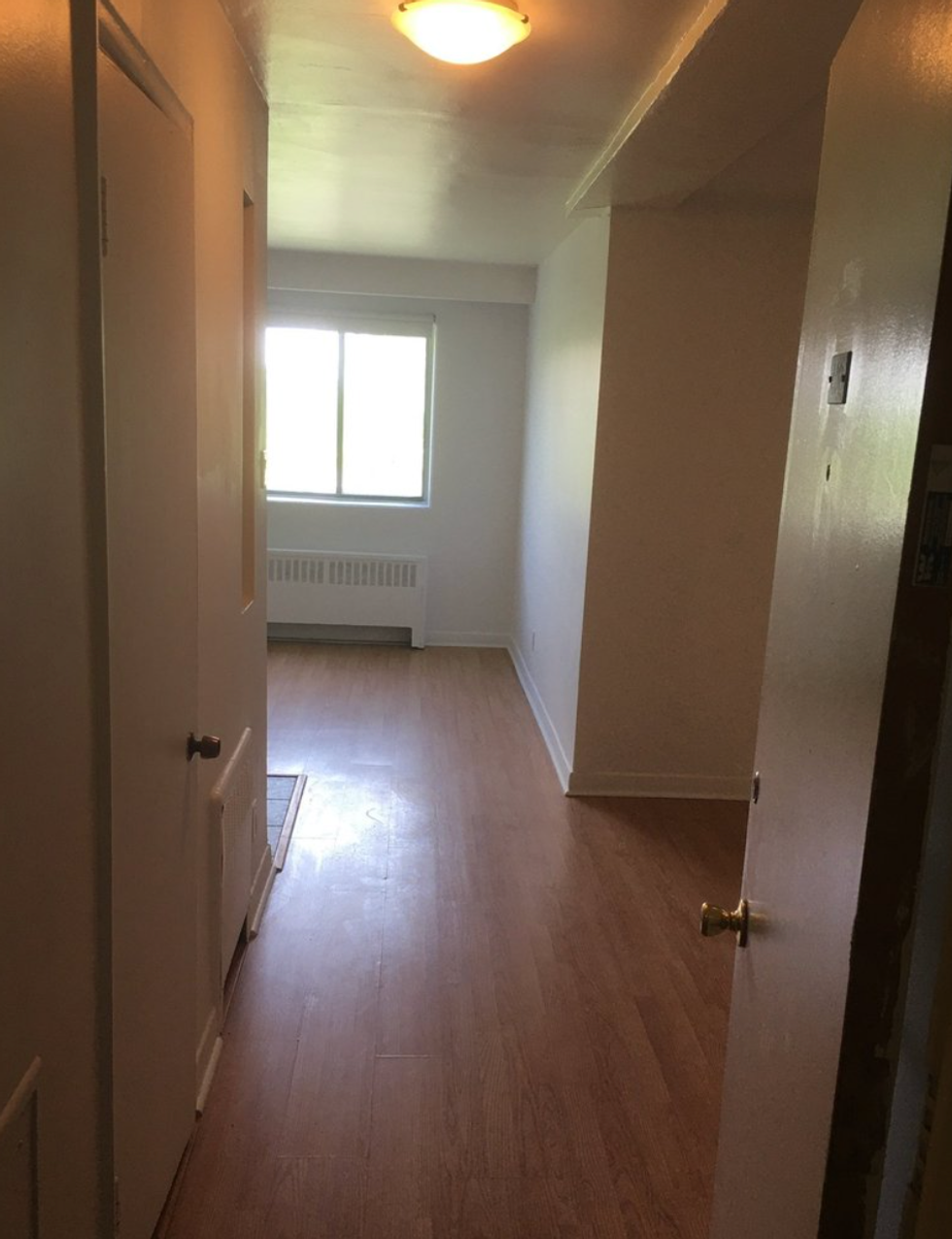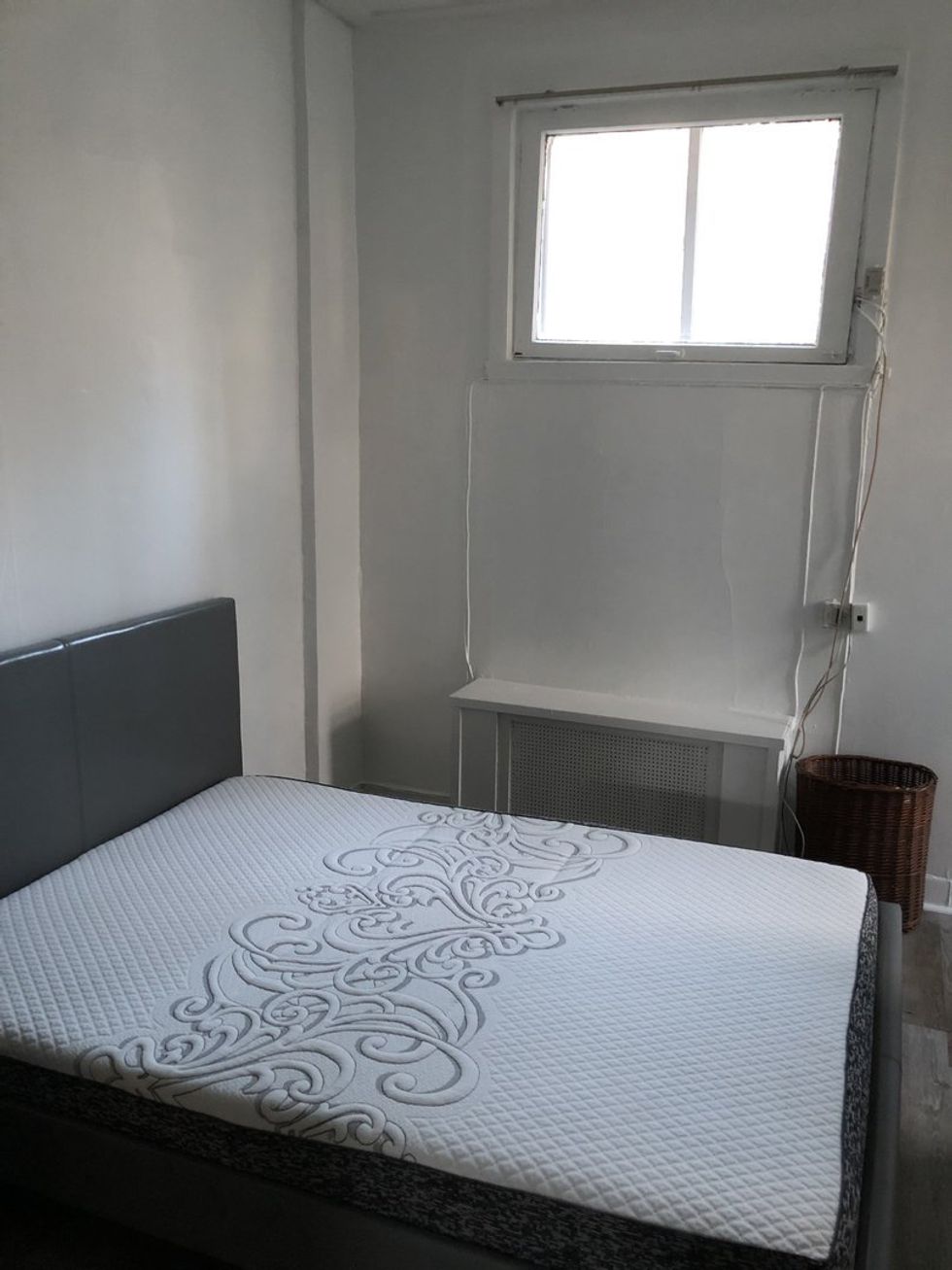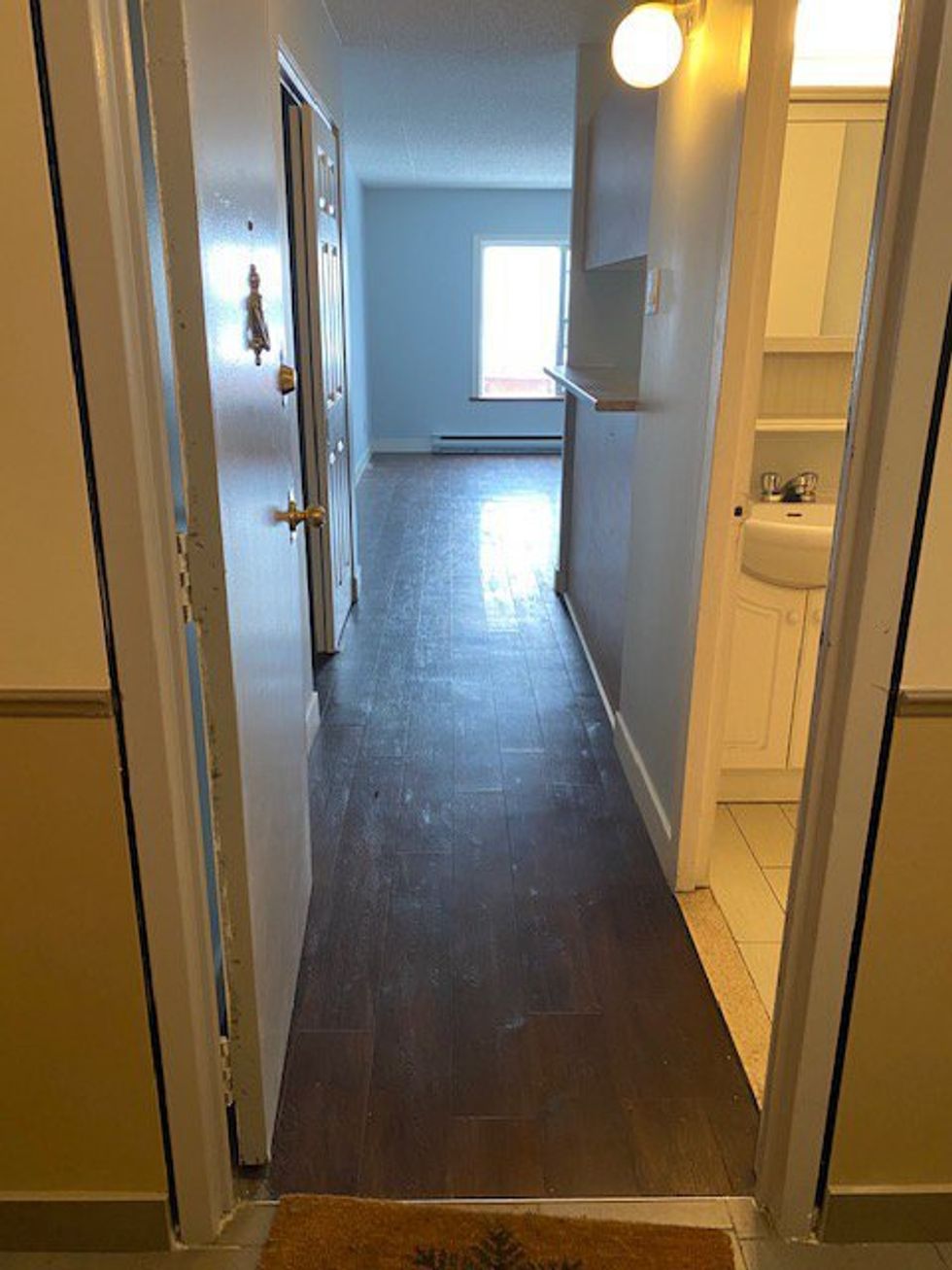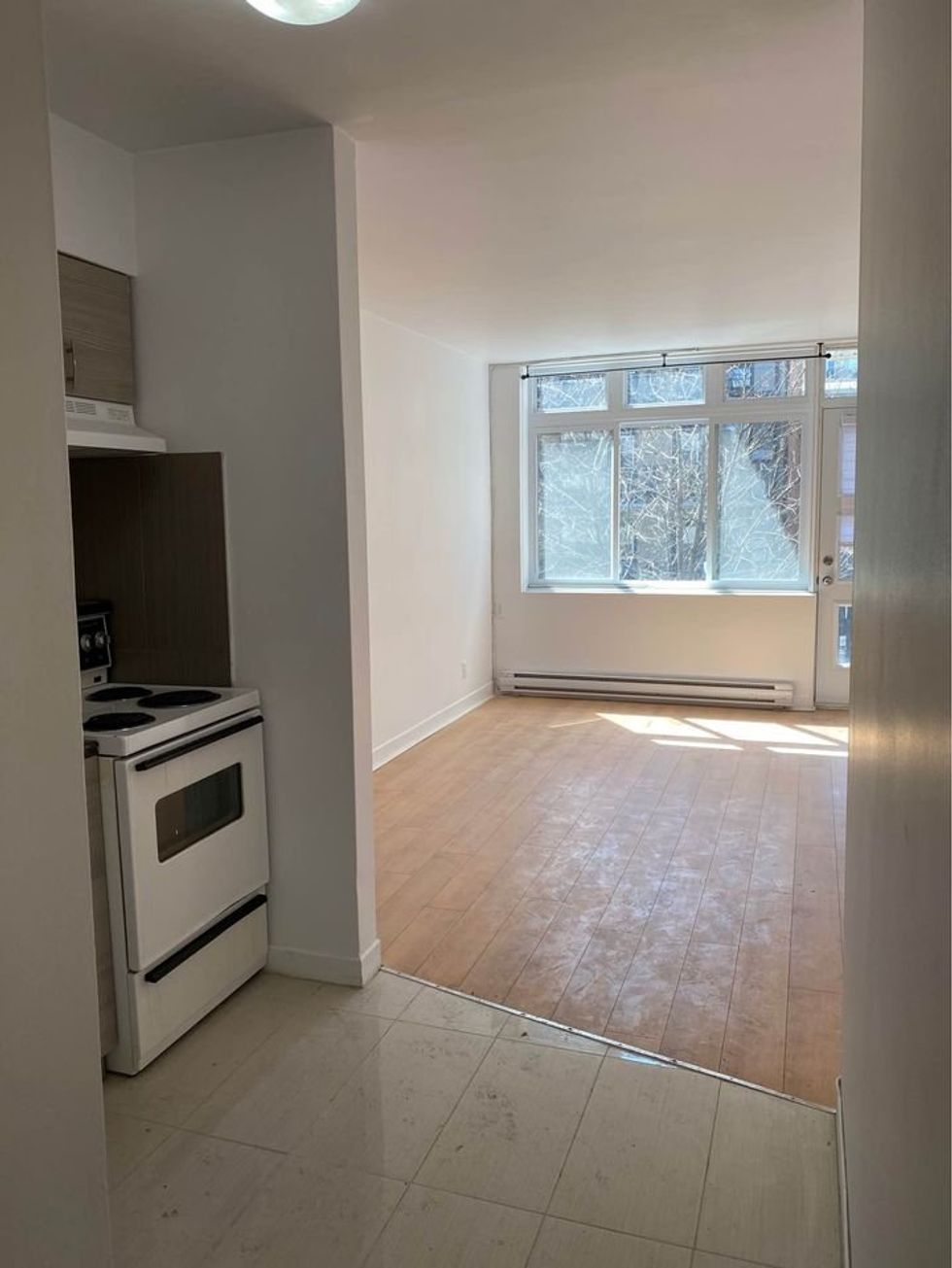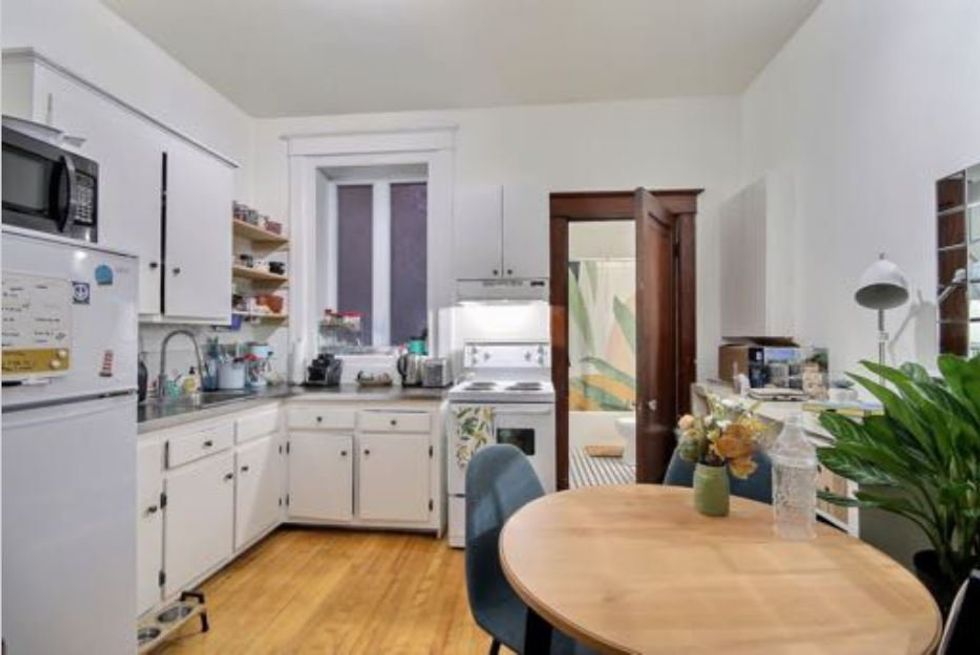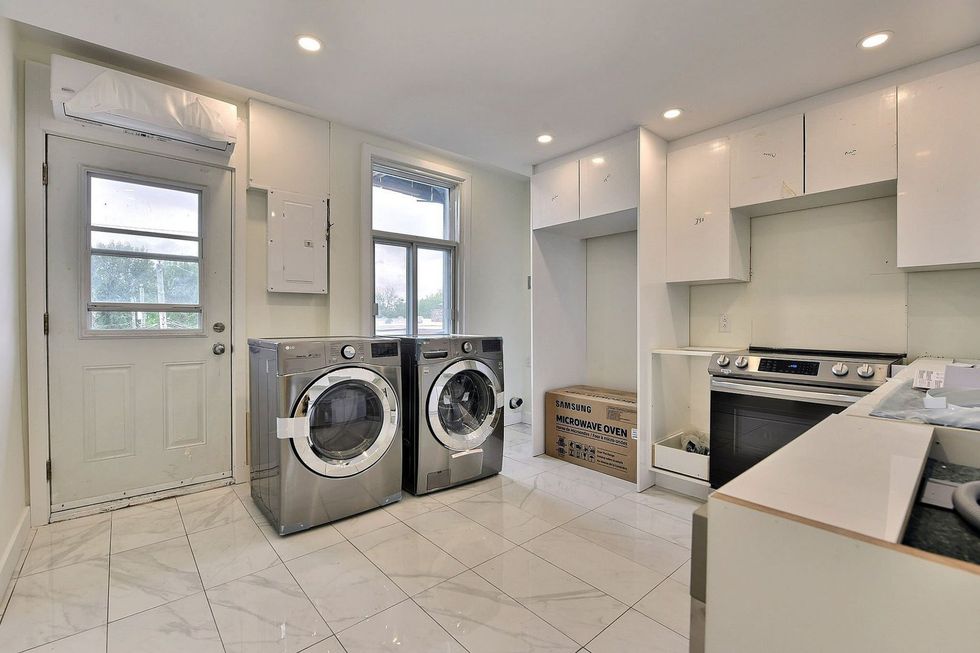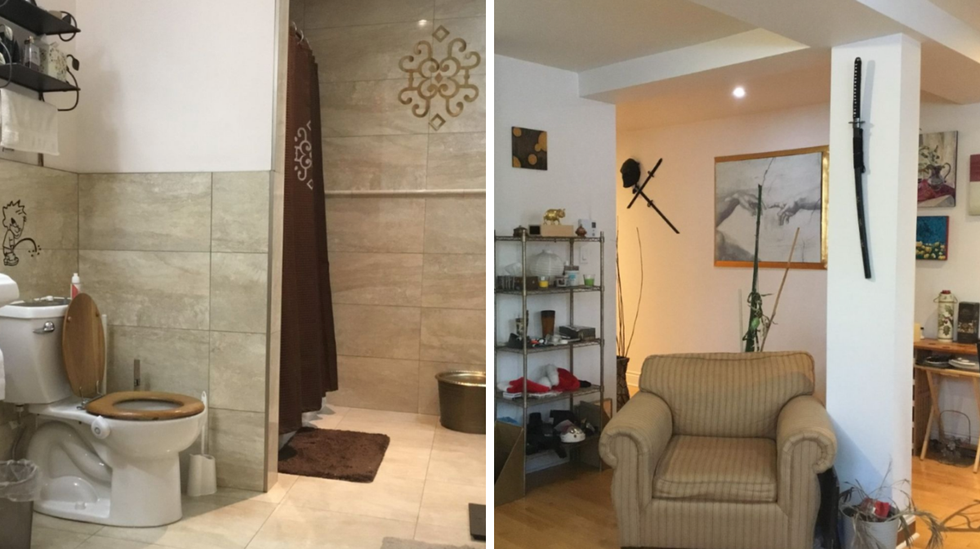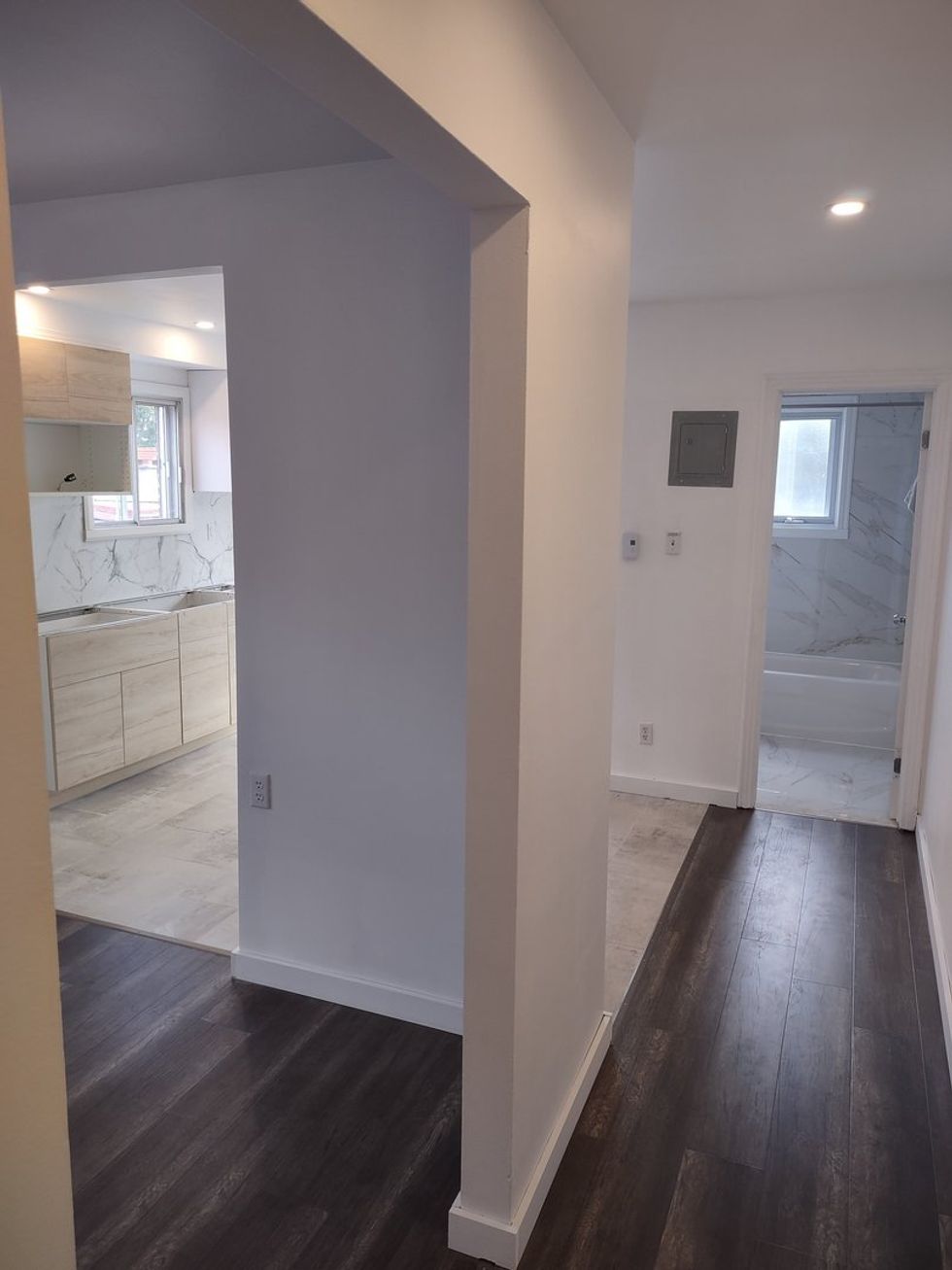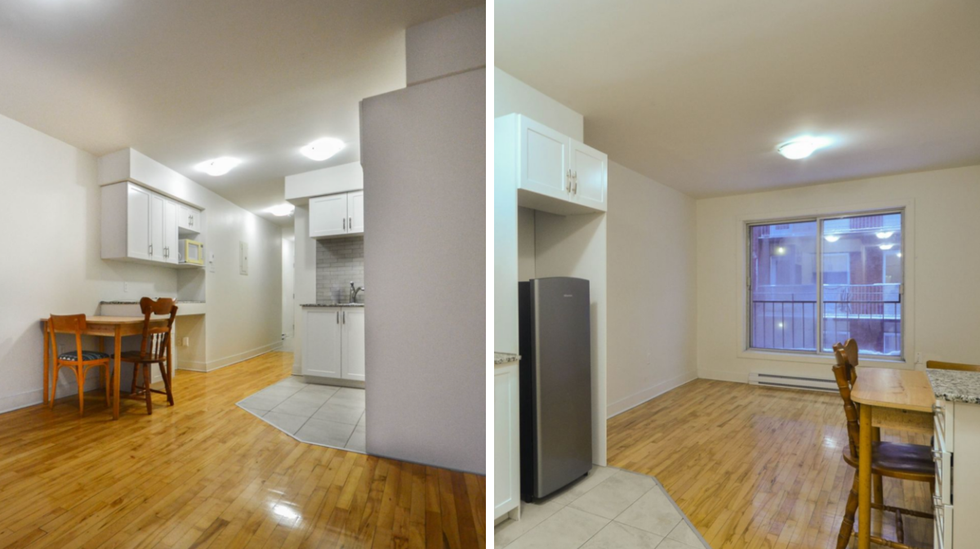The most expensive neighbourhood in June 2023 was, surprisingly, Saint Henri, overtaking downtown and Westmount both with an average rent of $1,998 for a one-bedroom, hovering ever so close to that $2,000 mark.
Homes renting at half that price look wildly different across Montreal. The smaller, less-pricey apartments in the city range from beautiful to perhaps less than that, but they're often the only options many Montrealers have, especially those newer to the city.
For cheaper-than-average rent, liv.rent recommends Ahuntsic-Cartierville as the city's least expensive neighbourhood, with an average rent nearly $600 lower than that in Saint Henri. It's still nearly $1,500 — close to twice as costly as some of the apartments in this list.
1-Bedroom in Cote-des-Neiges

The living room of the apartment.
Rentals.ca
Rent: $775
Address: 3222 Ave Appleton
View the listing here
1-Bedroom in Villeray

The kitchen space in the apartment.
Rentals.ca
Rent: $780
Address: 6535 Ave Saint-Michel
View the listing here
In 2023, Montreal's average rents haven't decreased month-over-month at all. Instead, there has been a steady increase carrying over from 2022, a year in which rents fluctuated more dramatically rather than rising. For $850, a price that many longtime Montrealers might consider high, the primary availabilities are one-bedrooms in generally cheaper areas of the city.
Organizations like the Coalition of Housing Committees and Tenants Associations of Quebec (RCLALQ) have long called for increased rent control in Montreal to combat rising rents and phenomena like renovictions — where a landlord evicts tenants for renovations which then serve as justification to hike rents higher than otherwise possible.
According to an RCLALQ report released in June 2023, studio apartments experienced a "very intense increase" in rent, offered at an average of $1,118 monthly per the organization's own research. In 2020, the same analysis revealed an average rent of $770.
This marks a 45% increase in four years, even for this apartment type, which RCLALQ characterizes as "intended for low-income tenants."
Prices per room are also increasing. RCLALQ cites a popular rule of thumb, "$100 per room," which was heavily circulated in the 1990s through 2000. "Today, much of Quebec is hovering around "$400 a room", and some areas of Montreal and Quebec City are headed for the crazy price of over "$500 a room,"" the RCLALQ report reads.
For low-income Montrealers, the options are becoming ever slimmer. Sharing a home with strangers may be preferable to sleeping on the street, but the lack of options restricts the ways people are able to live their lives, the RCLALQ argues.
To achieve true rent control, the RCLALQ seeks three things: a rent registry to make renting more transparent for tenants, a rent ceiling to ensure price hikes are a thing of the past, and a rent freeze to give the market a break from the "untenable" situation many renters find themselves in.
"Clearly, the crisis is being fuelled by a surge in rental prices, which are rising much faster than the rents of existing tenants," the RCLALQ report reads.
"Our data show that 58% of Quebec regions have seen an increase of over 15% [in average rents] this year, and 24% have seen an increase of over 25%."
The study's methodology involved cataloguing available apartments on Kijiji, a popular if more informal renting platform. The RCLALQ collected nearly 50,000 listings to compile the report.
This is only part of the story of the housing crisis in Montreal, though. Touristic and vacation rentals like Airbnb are contributing to the crisis, taking up space often without a proper registration number — in other words, they're illegal.
The RCLALQ's independent investigation of Airbnb listings found that "more 79% of the 29,482 listings on Airbnb did not have a registration number," adding that "a large number of municipalities, including Laval, had a rate of 95% or more illegal listings."
These listings take up space that could be used to permanently (or even semi-permanently) house Montrealers, but instead they're being advertised to tourists and other visitors.
What's more, "in several Quebec municipalities and regions, the proportion of rental units on the Airbnb platform, compared to the total number of rental units, exceeds (sometimes by a wide margin) the local vacancy rate, showing that that the platform alone is making a significant contribution to the housing shortage."
These factors contribute to the struggle that has led to Montrealers lining up out the door of available apartments just for the chance of a viewing.
"Rental housing, originally intended to meet the needs households in Quebec," the RCLALQ writes, "which are currently being diverted from their intended purpose for tourist accommodations, could entirely solve the housing crisis in many regions of Quebec, if these units were offered on the rental market market rather than to transient tourists."
This is perhaps the most striking information in the report, indicating that increased regulation and further legislation could be a next step towards improving the housing crisis for those most deeply affected.
This article's cover image was used for illustrative purposes only.
